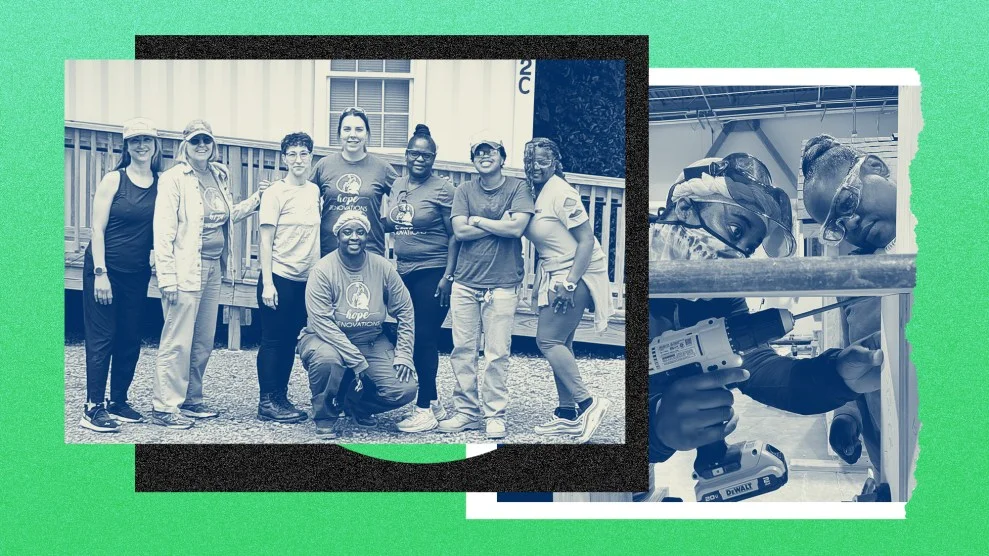
Trump Administration Cuts Funding to Programs Supporting Women in Construction: A Blow to Diversity and Labor Force Development
A wave of controversy has erupted following the Trump administration's decision to cut federal funding to community-based organizations focused on diversity, equity, and inclusion (DEI) initiatives. Among those affected is Hope Renovations, an award-winning nonprofit based in Chapel Hill-Carrboro, North Carolina, which provides pre-apprenticeship trade training to women and underemployed individuals. This move has sparked outrage and legal challenges, raising concerns about the future of workforce development and the representation of marginalized communities in the skilled trades.
Hope Renovations CEO Nora El-Khouri Spencer expressed her dismay, stating that the Department of Labor’s decision to cancel $300,000 in grant funding was based on the organization's explicit goals of increasing participation from underrepresented communities. Spencer emphasized that this termination threatens the very existence of their program, which relies on the grant for a significant portion of its budget.

The repercussions of these funding cuts extend beyond Chapel Hill-Carrboro. Across the country, nonprofits like Chicago Women in Trades are facing similar challenges. This organization, which has been instrumental in recruiting women into construction, is now grappling with stalled hiring and uncertain programming. Executive Director Jayne Vellinga notes that the funding cuts have created an environment of uncertainty, hindering their ability to continue providing essential services.
Chyanne Henderson, a participant in an Ironworkers Local 63 pre-apprenticeship class, highlights the importance of these programs, stating that they provide crucial entry points for individuals who may not have traditional connections to the trades. Similarly, Sam Barraza, a nonbinary individual, emphasized that programs like Chicago Women in Trades offer invaluable support and guidance, enabling them to pursue a career they are passionate about.

The construction industry is already grappling with a significant labor shortage, with estimates suggesting a need for over 400,000 new workers this year. Vanessa Jester, Community and Citizenship Director for Turner Construction, underscored the importance of tapping into all available talent pools, stating that the industry needs “all of the talent and resources that we can get.”
Critics argue that the Trump administration's actions are short-sighted and counterproductive, as DEI programs play a vital role in addressing labor shortages and promoting economic opportunity for marginalized communities. The cuts also raise questions about the administration's commitment to workforce development and the equitable distribution of resources.
As the debate rages on, Hope Renovations and other affected organizations are vowing to fight back. Nora El-Khouri Spencer stated that her team plans to challenge the funding termination, asserting that progress and equity are not partisan issues. The organization is also soliciting donations and encouraging supporters to contact their elected officials.
This developing situation has profound implications for the future of workforce development and the representation of women and minorities in the skilled trades. Will these funding cuts become a lasting trend, or will the voices of advocates and industry leaders prevail in preserving access to opportunity and fostering a more inclusive workforce?
What are your thoughts on the impact of these funding cuts? Share your perspective in the comments below.